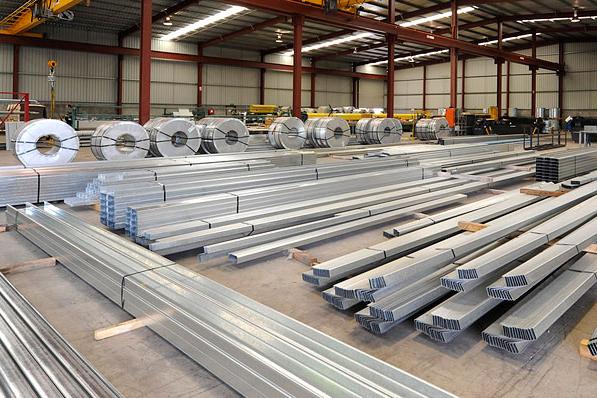Published on the 24/06/2008 | Written by Vendor - media release

Steel and steel building product manufacturer The Apex Group used to require the services of an external programmer to compile reports. SAP Business One has removed that dependency…
As The Apex Group (Apex) imports steel from countries like China, Japan and Korea, steel prices end up fluctuating constantly since they are based on overseas exchange rates. This situation required the 13-year-old company based in Dandenong, Melbourne, to improve its operating and management system to remain competitive in the market.
Furthermore, relying on just one person for an entire corporation’s report generation needs is a huge risk for any management to take. Apex faced many constraints due to an off-the-shelf business management system that had many limitations. For instance, Apex had to engage the help of an external programmer to compile reports, which was unproductive and led to unnecessary delays in decision making.
In addition, the programmer was also responsible for writing databases whenever a new manufacturing line was implemented. This was inefficient and didn’t make business sense in the long run.
“Basically, we were highly dependent on one person and it was simply not a good way of working,” said Apex accountant James Coghlan.
A new business management system was required. However, there weren’t many systems in the market that were suitable for the manufacturing and metals industry. Apex needed one that could cater to the specific needs of the steel business, such as tracking multiple types of production processes, accommodating different units of measure, and maintaining constant quality control from original heat and casting to the end product.
A solution that meets the specific needs of steel manufacturers
Of all the solutions evaluated, SAP stood out because it had all the functionality that Apex was looking for in a solution. The ability to calculate the number of steel strands and sheets from the mother coil and retrieving data such as specific customer’s purchases and sales based on weight breakdown were just some the essential data that Apex needed.
“We have very specific needs as a steel and steel building product manufacturer, and SAP is able to fulfill our needs.
Also, SAP is a well known brand and they are able to provide a solid platform to automate and manage our company’s processes. Put simply, it offers the best package in the market,” said Coghlan.
SAP Business One was selected to integrate Apex’s business processes as well as consolidate multiple databases on a centralised platform. Evolution Software Services (Evolution), Apex’s implementation partner, deployed SAP Business One and a SAP-certified metals module developed by Evolution to address Apex’s concerns. The system took close to five months to implement and went live on November 2005.
The SAP implementation was met with some user resistance initially. Through Evolution’s training sessions, however, that issue was addressed.
“Evolution has a highly qualified team of consultants who gave excellent advice. They also did a good job dealing with change management,” said Coghlan.
Drill down to specifics
With SAP, Apex no longer has to depend on an external programmer to pull up reports on the company’s operations.
Coghlan elaborated: “Not only can we retrieve accurate business-critical data any time we need to, we are able to drill down into the data for more details as well.” For instance, in addition to management and sales reports, detailed information like customer spending and products sold based on weight and length breakdown are available too.
Best of all, SAP Business One addresses Apex’s unique manufacturing needs by enabling the company to obtain a more accurate measurement or calculation of how many profiles (e.g. strands of coil or sheets) they can get out of a steel mother coil.
Multiple databases were consolidated on a centralised platform as a result of this project, making it easier to manage, retrieve and share information. The SAP platform also makes it easier for Apex to integrate a new database every time it creates a new manufacturing line. This new business system makes it easier to manage the new line of business too.
Data accuracy has improved as well, thereby enhancing the bank reconciliation process.
Apex’s journey towards utilising SAP solutions is not going to end here. Plans are in the pipeline for an inventory module to keep track of supplies through bar-coding devices.
“SAP has provided us with a good platform for the future. We look forward to doing more with the help of SAP Business One,” added Coghlan.



























